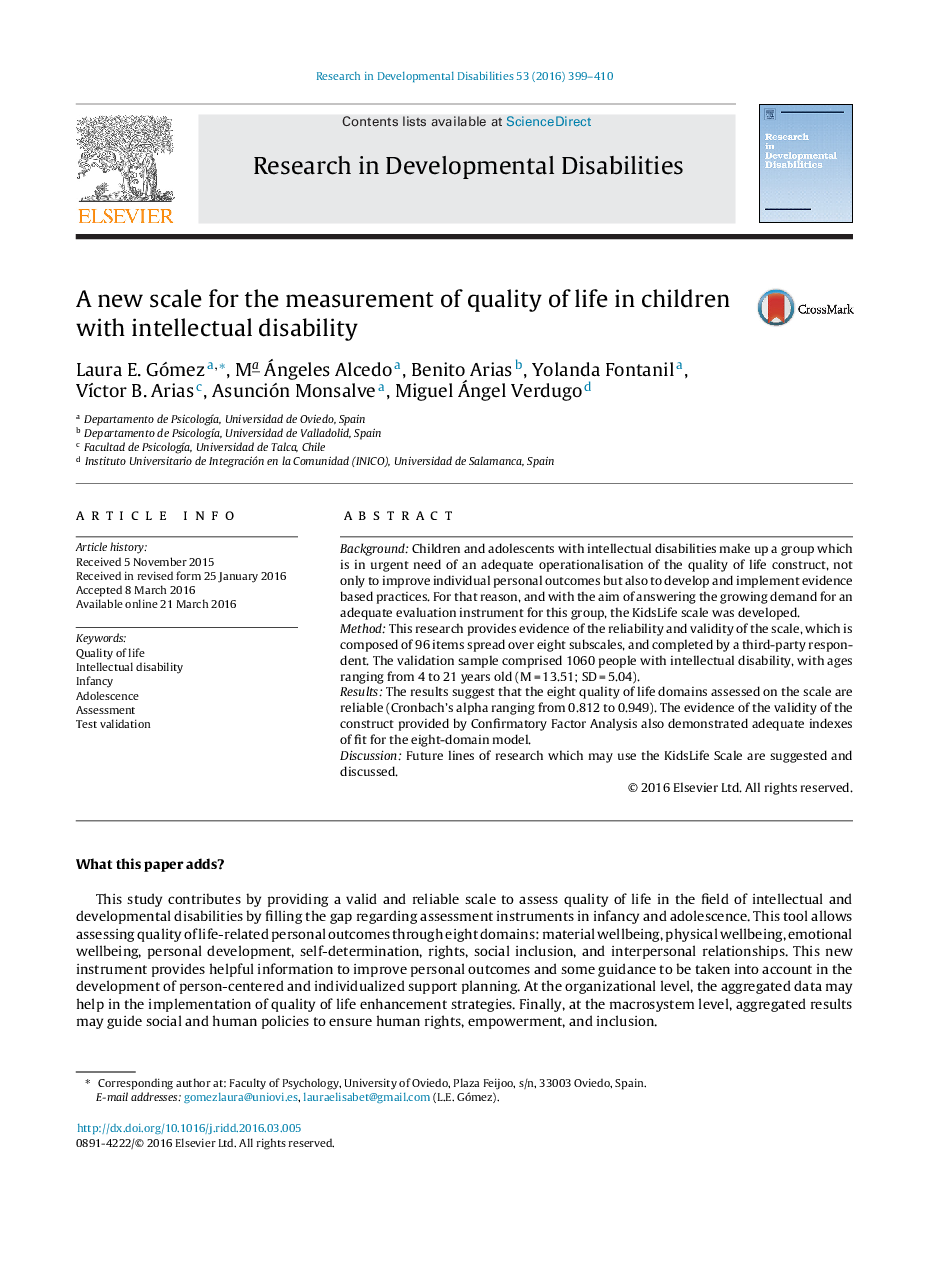| Article ID | Journal | Published Year | Pages | File Type |
|---|---|---|---|---|
| 370998 | Research in Developmental Disabilities | 2016 | 12 Pages |
•The KidsLife Scale evaluates the quality of life in children and adolescents with intellectual disabilities.•The KidsLife Scale contains 96 items organised in eight domains of quality of life.•The results suggest that the scale has appropriate reliability and validity.•The results could be very useful to improve quality of life and implementation of evidence-based practices.
BackgroundChildren and adolescents with intellectual disabilities make up a group which is in urgent need of an adequate operationalisation of the quality of life construct, not only to improve individual personal outcomes but also to develop and implement evidence based practices. For that reason, and with the aim of answering the growing demand for an adequate evaluation instrument for this group, the KidsLife scale was developed.MethodThis research provides evidence of the reliability and validity of the scale, which is composed of 96 items spread over eight subscales, and completed by a third-party respondent. The validation sample comprised 1060 people with intellectual disability, with ages ranging from 4 to 21 years old (M = 13.51; SD = 5.04).ResultsThe results suggest that the eight quality of life domains assessed on the scale are reliable (Cronbach's alpha ranging from 0.812 to 0.949). The evidence of the validity of the construct provided by Confirmatory Factor Analysis also demonstrated adequate indexes of fit for the eight-domain model.DiscussionFuture lines of research which may use the KidsLife Scale are suggested and discussed.
